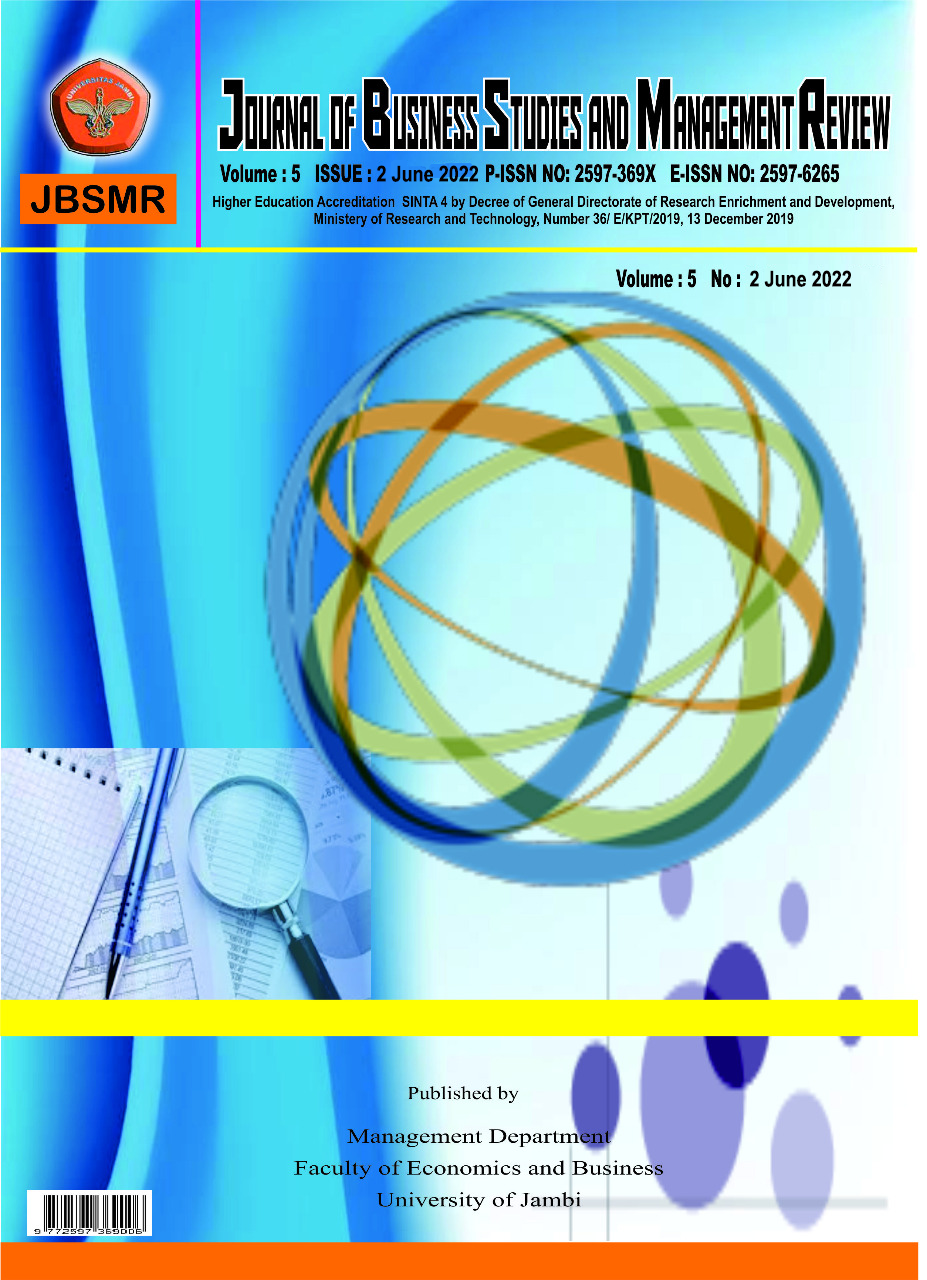EARNING MANAGEMENT: PHENOMENONS YOU CANNOT AVOID
(Discretionary Accruals Equation and Non Discretionary Accruals Equation)
DOI:
https://doi.org/10.22437/jbsmr.v5i2.19278Keywords:
Discretionary Accrual, earning, management, financial, IPOAbstract
Earning management is a phenomenon that is difficult to avoid because it was the effect of accrual basis usage in the preparation of financial statements. The accrual basis is agreed upon as the basis for preparing financial statements because the accrual basis is indeed more rational and fair compared to the cash basis. Conflicts of interest are increasing, especially because the principal cannot monitor daily management activities to ensure that management works in accordance with shareholders' wishes. The objective of this research is to measure earnings management in 78 companies in Indonesia that have conducted an IPO in 2008-2019. Earnings management is measured to determine the behavior of managers by utilizing earnings management when going to conduct an IPO. We collect secondary data provided by the IDX and the research sample is private companies and SOEs that conduct IPOs on the Indonesia Stock Exchange (BEI) from 2008 to 2013. The results of this study reveal that the calculation of earnings management with measurement methods Discretionary Accrual (DA) in 78 companies that have conducted an IPO has a minimum DA value of -384.41 and a maximum DA value of 27.04. The results of the one-sample t-test test statistically show a significance value below 5%, this shows that 78 companies tend to do earnings management before conducting an IPO
Downloads
Downloads
Published
How to Cite
Issue
Section
License
Copyright (c) 2022 Kamaludin Kamaludin, Akram Harmoni Wiardi

This work is licensed under a Creative Commons Attribution 4.0 International License.

This work is licensed under a Creative Commons Attribution 4.0 International License.





.png)




